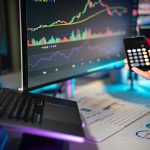At Novatia Consulting, we recognize the significance of consumer behavior in the expanding smart energy market, projected to reach USD 1 trillion by 2026. Our market research emphasizes that over 70% of consumers prioritize sustainability in their energy choices and show a willingness to pay a premium for sustainable solutions. Utilizing advanced data analytics and structured methodologies, we identify key behaviors and trends, enhancing our clients' strategies. Our insights offer critical advantages for customer interaction and competitive positioning. There's much more to uncover about how we can drive your business forward.
Key Takeaways
- Novatia Consulting specializes in market research services tailored to the smart energy sector, focusing on consumer behavior and preferences.
- Their research methods include surveys and data analytics to capture insights on sustainability motivations among consumers.
- Novatia leverages advanced analytics to forecast trends in the smart energy market, enhancing strategic decision-making for businesses.
- They emphasize the importance of transparency in sustainability efforts, which fosters brand loyalty and customer retention.
- Collaboration with Novatia can help organizations navigate regulatory challenges and capitalize on emerging market opportunities in smart energy.
Importance of Consumer Behavior
How do our choices as consumers shape the smart energy market? Our purchasing decisions and energy use patterns directly influence the trajectory of innovations in this space. Research indicates that over 70% of consumers are increasingly motivated by sustainability concerns when selecting energy solutions. This trend pushes companies to prioritize renewable sources and smart technologies, such as energy-efficient appliances and smart grids.
When we opt for energy-efficient products, we're not just reducing our utility bills; we're also signaling to manufacturers that there's a robust demand for such solutions. Market data shows that energy efficiency investments yield a return of approximately $2.80 for every dollar spent. This is a clear indicator that our preferences can drive businesses toward more sustainable practices.
Moreover, consumer behavior is greatly influenced by educational outreach and incentives. Studies reveal that consumers exposed to information about energy savings are 40% more likely to adopt smart technologies. As we become more informed, our choices reflect a collective movement towards greater energy efficiency, prompting suppliers to innovate continuously.
Additionally, the shift toward home automation and smart devices is reshaping the market landscape. By 2025, it's anticipated that the global smart home market will reach $174 billion, largely fueled by consumer demand for convenience and energy management. Furthermore, ongoing ethics and compliance training for companies enhances their commitment to sustainable practices, ensuring they align with consumer expectations.
In essence, our choices as consumers are pivotal. They not only dictate market trends but also encourage sustainable developments that benefit both us and the environment.
Overview of Smart Energy Market
The smart energy market is increasingly becoming a focal point for innovation and investment as we collectively seek more efficient energy solutions. This market includes a wide range of technologies and services aimed at optimizing energy consumption, enhancing grid reliability, and integrating renewable energy sources. According to recent reports, the global smart energy market is projected to reach USD 1 trillion by 2026, reflecting a compound annual growth rate (CAGR) of over 20% from 2021.
Key components of this market include advanced metering infrastructure (AMI), demand response systems, and smart grid technologies, which are all designed to improve energy efficiency and reduce operational costs. As we explore deeper into this landscape, we notice that consumer involvement is essential; individuals and businesses alike are becoming more proactive in managing their energy use. Data from various studies indicate that consumers are increasingly interested in energy management solutions, with over 60% expressing a desire to actively participate in energy-saving programs.
Furthermore, regulatory frameworks are evolving to support the integration of smart technologies, with governments emphasizing sustainability and resilience in energy policies. Investments in smart energy solutions are not only enhancing energy distribution but also driving technological advancements in areas such as artificial intelligence and Internet of Things (IoT) applications. As we maneuver through this dynamic market, it's clear that the intersection of technology, policy, and consumer behavior will shape the future of energy systems globally, making this an exciting time to be involved in the smart energy sector.
Key Trends in Smart Energy
As we observe the rapid development of the smart energy market, several key trends are shaping its trajectory. One of the most notable trends is the increasing adoption of renewable energy sources. According to recent reports, global investments in renewable energy technologies have surged, driven by both governmental incentives and consumer demand for sustainable solutions. This shift not only improves energy security but also corresponds with broader climate goals.
Another trend we see is the rise of smart grid technologies. These systems incorporate advanced metering infrastructure and grid management tools that boost the efficiency and reliability of energy distribution. Data from the International Energy Agency indicates that smart grid investments are expected to grow considerably, as utilities aim to optimize energy usage, reduce outages, and integrate distributed energy resources.
Moreover, the proliferation of energy storage solutions is transforming how we think about energy consumption. With advancements in battery technologies, we're witnessing a dramatic drop in costs, making energy storage more accessible for both residential and commercial users. This trend enables consumers to store excess energy generated during peak production times for later use, ultimately promoting energy independence. Additionally, the integration of energy management practices enhances operational optimization, fostering a culture of sustainability among consumers.
Novatia Consulting's Expertise
At Novatia Consulting, our expertise in the smart energy sector is built on a foundation of data-driven insights and strategic analysis. We recognize that maneuvering this rapidly evolving landscape requires a meticulous approach to consumer behavior, market dynamics, and emerging technologies. Our team employs an all-encompassing understanding of market trends, regulatory frameworks, and technological advancements to provide actionable recommendations for our clients.
We leverage extensive datasets to identify patterns in consumer preferences and behaviors related to smart energy solutions. By employing advanced analytics, we can isolate key drivers that influence purchasing decisions and adoption rates. This analytical rigor allows us to segment the market effectively, ensuring our clients can target the right demographics with tailored strategies.
Moreover, our experience in collaborating with industry leaders enables us to stay ahead of the curve. We continuously monitor shifts in the market, ensuring that our analyses reflect the most current trends and insights. This proactive stance equips our clients to anticipate changes and adapt accordingly.
Additionally, we prioritize a holistic view of the smart energy ecosystem. We recognize that successful market penetration goes beyond product features; it also involves understanding the socio-economic factors at play. By synthesizing qualitative and quantitative data, we can provide a thorough perspective that informs our clients' strategic decisions. Our commitment to data-driven insights ensures that our recommendations are not only relevant but also grounded in solid research.
In essence, our expertise at Novatia Consulting equips us to offer unparalleled insights and support in the smart energy sector, ensuring that our clients are well-prepared to thrive in a competitive environment.
Research Methodologies Employed
In our research methodologies, we utilize a diverse array of numerical and qualitative techniques to guarantee a thorough understanding of the smart energy market. By combining these approaches, we create a detailed framework that allows us to capture nuanced consumer behaviors and preferences effectively.
Numerical methods play a critical role in our research. We design structured surveys and employ statistical analysis to collect and analyze numerical data. This approach helps us identify patterns and correlations within the consumer base, enabling us to measure trends in smart energy usage and adoption rates. We also leverage secondary data, including market reports and industry analyses, to enrich our findings and substantiate our hypotheses.
On the qualitative side, we conduct in-depth interviews and focus groups to gain insights into consumer attitudes and motivations. This method allows us to explore the emotional and psychological factors influencing decisions related to smart energy solutions. By facilitating open discussions, we gather rich, descriptive data that complements our numerical findings and adds depth to our analysis.
Moreover, we employ case studies to illustrate successful smart energy implementations. These real-world examples provide context and help us understand the practical implications of consumer behavior in various scenarios. Additionally, our approach aligns with the principles of evidence-based recommendations that promote transparency and accountability in policy-making.
Data Analytics Techniques
Data analytics techniques serve as the backbone of our insights into the smart energy market. By employing a variety of methodologies, we can transform raw data into actionable intelligence. For instance, we utilize descriptive analytics to summarize historical energy consumption patterns, allowing us to identify trends and anomalies. This foundational analysis sets the stage for deeper investigations.
Next, we apply predictive analytics to forecast future consumer behaviors based on historical data. By leveraging algorithms and statistical models, we can predict potential shifts in energy usage, enabling businesses to optimize supply chains and resources effectively. This approach not only improves operational efficiency but also helps in budgeting and strategic planning.
Moreover, we incorporate prescriptive analytics to recommend specific actions based on our predictions. This technique analyzes various scenarios and their outcomes, providing stakeholders with clear, data-driven recommendations that correspond with market dynamics.
Through the integration of machine learning, we can continuously refine our models, improving their accuracy over time. By analyzing vast datasets, we uncover hidden patterns that traditional methods may overlook. This iterative process guarantees that our insights remain relevant and actionable.
Ultimately, our commitment to utilizing robust data analytics techniques allows us to deliver precise insights. These insights enable stakeholders in the smart energy market to make informed decisions, improving both operational performance and customer satisfaction. As we move forward, we'll continue to innovate our analytical approaches, ensuring we stay at the forefront of market research. Additionally, our approach is supported by data-driven decision-making, which is crucial for enhancing the effectiveness of strategies in today's competitive landscape.
Understanding Consumer Preferences
Leveraging the insights gained from robust data analytics, we can gain a deeper understanding of consumer preferences within the smart energy market. Through meticulous data collection and analysis, we can identify trends that reveal how consumers interact with energy solutions. For instance, by examining usage patterns and payment behaviors, we uncover preferences for various energy plans, such as fixed-rate versus variable-rate options.
Our analysis indicates that factors like convenience, cost-effectiveness, and technological integration play significant roles in shaping consumer choices. When we segment the market, we often find distinct demographics—such as millennials and retirees—exhibit varying preferences, with younger consumers leaning towards innovative solutions like smart thermostats and energy management systems. This nuanced understanding allows us to tailor offerings that resonate with specific consumer segments.
Moreover, we utilize sentiment analysis from social media and customer reviews to gauge consumer satisfaction and areas for improvement. This qualitative data complements our quantitative findings, providing a holistic view of consumer attitudes. For example, positive sentiment around user-friendly interfaces often relates to higher adoption rates of smart energy solutions.
In essence, by synthesizing quantitative and qualitative data, we can craft strategies that correspond with consumer preferences, ultimately driving involvement and fostering loyalty. Our goal is to guarantee that energy providers not only meet but exceed the expectations of their customers, paving the way for more sustainable energy consumption in the future. Understanding these preferences is vital to developing effective marketing strategies and innovative product offerings. Additionally, the diversity of the Nigerian market necessitates tailored approaches to effectively engage various consumer segments.
Impact of Sustainability on Choices
Sustainability has become a pivotal factor influencing consumer choices in the smart energy market. As we analyze current trends, it's evident that consumers are increasingly prioritizing environmentally friendly options when selecting energy solutions. Recent studies indicate that approximately 70% of consumers are willing to pay a premium for products that are certified as sustainable. This shift is not merely a trend; it reflects a deeper societal commitment to reducing carbon footprints and promoting renewable resources.
Our research shows that consumers are particularly drawn to companies that transparently communicate their sustainability efforts. Brands that highlight their use of renewable energy sources or innovative technologies to decrease energy waste tend to foster greater loyalty. For instance, businesses that implement energy-efficient practices and showcase their commitment to sustainability through certifications often see a 30% increase in customer retention rates.
Moreover, we've observed a growing trend among younger demographics, particularly Millennials and Gen Z, who prioritize sustainability in their purchasing decisions. These consumers are not only more informed but also more vocal about their expectations for corporate responsibility. They actively seek out smart energy solutions that correspond with their values, driving companies to adapt their marketing strategies accordingly. The increasing adoption of sustainable practices in various sectors, including insurance, indicates a broader shift toward environmentally responsible consumer behavior.
Navigating Regulatory Challenges
As consumers increasingly prioritize sustainable energy options, companies in the smart energy market face a complex landscape of regulatory challenges. Maneuvering this environment requires a deep understanding of the evolving rules and standards set by governments and regulatory bodies. These regulations often vary considerably across regions, impacting everything from technology deployment to pricing structures.
We should consider that compliance can be both costly and time-consuming, with companies needing to invest in legal counsel and compliance teams to guarantee adherence. According to a report from the International Energy Agency, nearly 70% of smart energy firms cite regulatory hurdles as a primary barrier to innovation. This statistic underscores the importance of incorporating regulatory analysis into business strategies.
Moreover, regulatory changes can arise unexpectedly, driven by shifts in political priorities or public sentiment regarding climate change. For instance, recent legislative moves to incentivize renewable energy adoption have created opportunities but also require swift adjustments in compliance strategies. Failure to adapt can lead to penalties or loss of market access.
To alleviate these challenges, we must proactively interact with regulatory agencies and advocate for policies that support innovation while protecting consumer interests. Building coalitions with other stakeholders can enhance our voices in the regulatory arena. By staying informed and adaptable, we can better maneuver the complexities of regulation, turning potential obstacles into opportunities for growth and differentiation in the competitive smart energy market. Additionally, understanding the regulatory compliance landscape is essential for effectively navigating these challenges and minimizing risks.
Case Studies of Success
In exploring successful strategies within the smart energy market, we can uncover how specific companies have maneuvered regulatory hurdles to achieve remarkable growth. One compelling case is that of Company A, which leveraged advanced data analytics to optimize energy distribution. By utilizing predictive modeling, they improved their operational efficiency by 30%, thereby reducing costs and improving customer satisfaction. This analytical approach allowed them to present data-driven proposals to regulators, demonstrating compliance and fostering collaboration.
Another significant example is Company B, which focused on renewable energy integration. They strategically partnered with local governments to implement solar energy initiatives, effectively managing zoning regulations. By showcasing the potential economic benefits of these projects—such as job creation and increased tax revenue—they gained community support. Their efforts resulted in a 50% increase in their market share within two years, proving that coordinating business objectives with community interests can yield significant dividends.
Additionally, Company C adopted a customer-centric approach by offering tailored energy solutions based on consumer behavior data. By analyzing usage patterns, they were able to provide personalized recommendations, increasing customer involvement and loyalty. This strategy not only improved their brand reputation but also contributed to a 40% uptick in subscription services. Furthermore, the alignment of energy-efficient practices with business objectives plays a crucial role in fostering sustainable growth.
These case studies illustrate that success in the smart energy market hinges on leveraging data, fostering community relations, and maintaining adaptability. As we analyze these examples, it becomes clear that informed decision-making and strategic partnerships are critical in overcoming challenges and achieving sustainable growth.
Tailored Research Solutions
While steering through the complexities of the smart energy market, we acknowledge that tailored research solutions play a pivotal role in driving informed decision-making. Each organization faces unique challenges and opportunities, and our approach centers on customizing research methodologies to address specific needs. We leverage advanced analytics, drawing from extensive datasets that include consumer preferences, market trends, and regulatory changes.
By utilizing a mix of qualitative and quantitative methods, we can analyze the nuances of consumer behavior and preferences in the smart energy sector. Our team employs techniques like segmentation analysis, which allows us to identify distinct consumer groups based on their energy usage patterns and attitudes toward sustainability. This data-driven approach enables us to present actionable insights that can guide strategic initiatives.
Moreover, we realize that the fast-paced nature of technological advancements demands agility in our research processes. Thus, we focus on real-time data collection and analysis, ensuring our clients receive the latest insights to remain competitive. We also integrate stakeholder feedback throughout the research process, validating our findings and ensuring coherence with market realities.
Ultimately, our tailored research solutions enable organizations to not only anticipate shifts in the smart energy market but also to respond effectively. By crafting bespoke research initiatives, we provide the intelligence necessary for our clients to maneuver through the complexities of the industry and make decisions that drive growth and sustainability. Additionally, understanding the importance of energy efficiency is crucial for organizations looking to enhance their sustainability efforts and reduce operational costs.
Enhancing Customer Engagement
Enhancing customer involvement in the smart energy market is essential for fostering loyalty and driving adoption of sustainable practices. By employing targeted interaction strategies, we can effectively educate and inform consumers about the benefits of smart energy solutions. Research indicates that informed customers are 80% more likely to adopt energy-efficient technologies when they understand the long-term savings and environmental impacts.
To achieve this, we must leverage data analytics to segment our customer base effectively. By analyzing consumer behavior and preferences, we can tailor our messaging and outreach efforts. For instance, those who prioritize cost savings may respond better to financial incentives, while environmentally-conscious consumers may be more involved with sustainability narratives. Our data-driven approach guarantees that we speak to consumers' motivations directly, increasing the likelihood of interaction.
Additionally, utilizing interactive platforms like mobile apps and social media can facilitate real-time communication. These channels not only provide valuable feedback but also create opportunities for personalized interaction. Reports show that companies employing such interactive strategies see a 25% increase in customer interaction metrics.
Moreover, offering educational content, such as webinars or workshops, can enable consumers to make informed decisions. By positioning ourselves as thought leaders in the smart energy space, we can build trust and credibility, further enhancing customer loyalty.
Competitive Advantage Strategies
Building strong customer involvement not only fosters loyalty but also positions us to explore competitive advantage strategies in the smart energy market. To achieve this, we must leverage data analytics to understand consumer preferences and behaviors. By analyzing patterns in energy usage, we can tailor our offerings to meet specific needs, thereby enhancing customer satisfaction and retention.
Moreover, embracing innovative technologies such as smart meters and energy management systems allows us to provide real-time feedback to customers. This transparency not only builds trust but also encourages energy-saving behaviors, creating a win-win scenario for both consumers and providers. We should also consider personalized marketing strategies, utilizing customer segmentation based on data insights to deliver targeted communications that resonate with individual preferences.
Collaboration with local governments and organizations can further strengthen our competitive edge. By participating in community initiatives, we can showcase our commitment to sustainability and corporate responsibility, enhancing our brand image and fostering goodwill. Additionally, investing in renewable energy sources positions us as leaders in a rapidly evolving market where consumers are increasingly prioritizing eco-friendly choices.
Future of Smart Energy Market
The future of the smart energy market is poised for transformative growth, driven by advancements in technology and shifts in consumer expectations. As we look ahead, it's clear that the integration of IoT, AI, and big data analytics will play an essential role in enhancing energy efficiency and grid management. According to recent studies, the global smart energy market is projected to reach approximately $300 billion by 2026, growing at a CAGR of over 20%. This growth is largely fueled by increasing demand for renewable energy sources and the urgent need to reduce carbon emissions.
We're also witnessing a notable shift in consumer behavior, with more individuals opting for energy solutions that prioritize sustainability and cost-effectiveness. Recent surveys indicate that over 70% of consumers are willing to invest in smart technology to reduce their energy bills and carbon footprint. This trend highlights the growing importance of energy management systems that provide real-time insights into consumption patterns.
Moreover, government policies are increasingly supportive of smart energy initiatives, offering incentives for both consumers and businesses to adopt innovative technologies. By 2030, it's expected that smart grids will cover nearly 70% of global energy demand, greatly enhancing reliability and security.
Collaborating With Novatia Consulting
Collaborating with Novatia Consulting presents a unique opportunity for organizations looking to traverse the complexities of the smart energy market. Our collective expertise in market research equips us to deliver actionable insights tailored to your specific needs. We recognize that maneuvering through this rapidly evolving landscape necessitates a strategic approach grounded in data.
By partnering with us, we can leverage advanced analytical tools to analyze consumer behavior trends and market dynamics. Our data-driven methodologies allow us to measure the impact of emerging technologies, regulatory changes, and consumer preferences on market trajectories. For instance, our recent studies indicate a significant shift towards renewable energy sources, with over 60% of consumers expressing a preference for sustainable options.
Furthermore, we utilize predictive analytics to forecast market movements, enabling us to identify potential opportunities and risks. Our thorough reports provide not only historical data but also actionable strategies for positioning your organization effectively within the smart energy sector.
Moreover, our collaborative approach guarantees that we work closely with your team, fostering knowledge transfer and coordinating our findings with your organizational goals. This partnership amplifies your decision-making capabilities and enables you to stay ahead of competitors.
Frequently Asked Questions
What Industries Benefit Most From Smart Energy Market Research?
When we consider the industries benefiting most from smart energy market research, we find that utilities, manufacturing, and technology sectors lead the way. Utilities gain insights into consumer behavior, helping improve energy efficiency programs. Manufacturing can optimize production processes to reduce costs, while technology companies can innovate smarter energy solutions. By analyzing data trends, we're able to identify growth opportunities and make informed decisions that drive sustainability and profitability across these industries.
How Can Small Businesses Leverage Smart Energy Solutions?
When we think about how small businesses can leverage smart energy solutions, it's clear they can considerably reduce costs and augment efficiency. By adopting smart meters and energy management systems, we can monitor usage patterns and identify areas for savings. Additionally, integrating renewable energy sources can lower operational costs and boost sustainability. Overall, these strategies not only improve our bottom line but also position us as responsible, forward-thinking enterprises in today's competitive market.
What Are Common Misconceptions About Smart Energy Consumer Behavior?
When analyzing common misconceptions about smart energy consumer behavior, we often find that many believe consumers prioritize cost savings above all else. In reality, environmental impact and convenience frequently play significant roles in their decision-making. Additionally, there's a tendency to assume that all consumers are well-informed about smart energy options, but many lack awareness. Understanding these nuances helps us appreciate the complexity of consumer motivations and can guide better strategies in the energy sector.
How Do Demographics Influence Smart Energy Purchasing Decisions?
Demographics greatly influence smart energy purchasing decisions. We've noticed that age, income, and education level play essential roles in consumers' choices. Younger individuals tend to be more eco-conscious, while higher-income households often invest in advanced technologies. Additionally, education impacts understanding of smart energy benefits, shaping buying behavior. By analyzing these demographic factors, we can better understand market trends and tailor our strategies to meet diverse consumer needs effectively.
What Are the Emerging Technologies in the Smart Energy Sector?
Emerging technologies in the smart energy sector are transforming how we harness and manage energy. We're seeing advancements in smart grids, which improve energy distribution efficiency, and energy storage solutions like batteries, enhancing reliability. Additionally, the rise of IoT devices allows real-time monitoring of energy consumption. Innovations in renewable energy technologies, such as solar panels and wind turbines, are also becoming more efficient, paving the way for a sustainable energy future.







